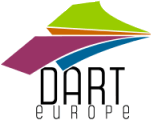Aburezeq Khalil Abdullah
Relationship among Social Problem-Solving, Negative Problem Orientation, Major Negative Interpersonal Events, and Psychological Well-Being: A Comparative Study between Hungarian And Palestinian Adolescents.
Doktori értekezés, Szegedi Tudományegyetem (2000-).
(2023)
|
PDF
(disszertáció)
Download (3MB) |
|
|
PDF
(tézisfüzet)
Download (640kB) |
|
|
PDF
(címlap)
Download (338kB) |
Magyar nyelvű absztrakt
A szociális problémamegoldás (SPS) az az egyensúly, amellyel minden embernek rendelkeznie kell ahhoz, hogy megbirkózzon fő negatív interperszonális eseményeivel, és ennek következtében élvezze a pszichológiai jóllétet (PWB). A magyar (n = 251) és palesztin (n = 410) diákok (12, 15 és 18 évesek) körében végzett kutatás célja (1) a szociálisprobléma-megoldás, a negatív problémaorientáció, a jelentős negatív életesemények és a pszichológiai jóllét életkori és nem szerinti jellemzőinek, (2) e tényezők kapcsolatának feltárása, (3) a mért személyiségbeli és környezeti tényezők (pl. családi összetétel, szülők iskolai végzettsége) szociálisprobléma-megoldásra gyakorolt hatásának vizsgálata és (4) a két minta jellemzőinek összehasonlítása volt. SPSI–R-rel (D'Zurilla et al., 2022), a negatív problémaorientációt a NEGORI-val (Kasik et al., 2018), a jelentős negatív életeseményeket az MNIE–M-mel (Aburezeq & Kasik, 2022), valamint a pszichológiai jóllétet a W-BQ12-vel (Bradley, 1994) tártuk fel. Az MNIE–M saját fejlesztésű mérőeszköz, mely mindegyik életkorban és mintán megfelelő megbízhatósági mutatóval rendelkezett, akárcsak a többi kérdőív. Az SPSI–R és a NEGORI esetében a magyar minta a korábbi magyarországi vizsgálatok főbb tendenciáit mutatja. A NEGORI-adatok megerősítik az SPSI–R által mutatott különbségeket: a negatív énhatékonyság és a szokás/minta szerinti negatív orientáció a 12 éves palesztin serdülőkre jellemzőbb, mint a magyar 12 évesekre. A magyar és a palesztin minta összehasonlítása alapján 12 éves korban a családi, az osztálytársakkal és a barátokkal kapcsolatos negatív életesemények gyakoribbak a palesztin diákoknál, a 15 éves korosztály esetében a családi, a tanári és a baráti negatív események a palesztin serdülőknél, valamint 18 éves korban az osztálytársi, a tanári és a baráti negatív életesemények a palesztin serdülők esetében jellemzőbbek.18 éves palesztin lányok látják leginkább negatívan életüket. A magyar és palesztin serdülők összehasonlítása alapján a 12 éveseknél az energia és a pozitív életszemlélet a palesztin serdülőkre jellemzőbb, 15 és 18 éves korban a negatív életszemlélet a magyar serdülőkre.
Absztrakt (kivonat) idegen nyelven
Social problem-solving (SPS) is the balance that each person ought to have in order to cope with his/her major negative interpersonal events and consequently enjoys psychological well-being (PWB). The study aimed to investigate age and gender characteristics of SPS, negative orientation (NEGORI), major negative interpersonal events (MNIE), and PWB among 12-, 15-, and 18-year-old Hungarian and Palestinian adolescents. Furthermore, correlations between the previous variables were examined. The effects of family composition, parents’ education, MNIE factors, and PWB factors on SPSI factors were also explored. Some background factors were selected in this study (i.e., gender, age, family composition, and mother’s and father's education). The following measurements were adopted: SPSI–R (D’Zurilla et al., 2022), NEGORI (Kasik et al., 2018), MNIE-M (Aburezeq & Kasik, 2021), and W-BQ12 (Bradley, 1994). The descriptive approach was adopted. The study included 661 Hungarian and Palestinian adolescents by the use of random stratified sampling. On the one hand, the Hungarian sample (n = 251) included boys (n = 109), girls (n = 142), 12-year-old (n = 93), 15-years-old (n = 86), and 18-years-old (n = 72). On the other hand, the Palestinian sample (n = 410) included boys (n = 201), girls (n = 209), 12-year-old (n = 124), 15-years-old (n = 127), and 18-years-old (n = 159). Based on the results, the following findings were revealed: Rational problem-solving was more typical among Hungarian 12-year-old girls. Negative problem orientation was found significant among Hungarian 15-year-old girls, while positive problem orientation was more typical among Hungarian 15-year-old boys. Positive problem orientation and rational problem solving were found to be typical among Palestinian 18-year-old girls. Fending off the problem, positive consequences, and waiting were more characteristics of Palestinian 12-year-old girls. MNIE related to family were significant in Palestinian 12-year-old boys. However, among Hungarian 12-years old, MNIE related to family were significant among boys. Among 15-year-old Hungarian adolescents, MNIE related to Classmates and yourself were more typical among girls. Among 18, Palestinian adolescent boys showed that they experienced MNIE related to classmates, teacher, and friends more than girls did. The findings of PWB reported that negative well-being was revealed as more typical among 18-year-old Palestinian girls. The findings of regression showed that there were multiple effects for the independent variables on the dependent variables.
| Mű típusa: | Disszertáció (Doktori értekezés) |
|---|---|
| Publikációban használt név: | Aburezeq Khalil Abdullah |
| Magyar cím: | A szociálisprobléma-megoldás, a negatív problémaorientáció, a jelentős negatív életesemények és a pszichológiai jóllét kapcsolata: magyar és palesztin serdülők összehasonlító vizsgálata |
| Témavezető(k): | Témavezető neve Beosztás, tudományos fokozat, intézmény MTMT szerző azonosító Kasik László tanszékvezető egyetemi docens, Neveléstudományi Intézet SZTE / BTK 10017484 |
| Szakterület: | 05. Társadalomtudományok > 05.01. Pszichológia 05. Társadalomtudományok > 05.03. Oktatástudomány |
| Doktori iskola: | Neveléstudományi Doktori Iskola |
| Tudományterület / tudományág: | Bölcsészettudományok > Neveléstudományok |
| Nyelv: | angol |
| Védés dátuma: | 2023. november 09. |
| Kulcsszavak: | szociálisprobléma-megoldás, negatív orientáció, jelentős negatív életesemények, pszichológiai jóllét; Social Problem-Solving, Negative Orientation, Major Negative Events, Psychological Well-Being |
| EPrint azonosító (ID): | 11760 |
| A feltöltés ideje: | 2023. máj. 19. 08:54 |
| Utolsó módosítás: | 2024. jan. 22. 12:47 |
| Raktári szám: | B 7292 |
| URI: | https://doktori.bibl.u-szeged.hu/id/eprint/11760 |
| Védés állapota: | nem védett (Nem idézhető amíg nem kap DOI számot.) |
Actions (login required)
 |
Tétel nézet |






